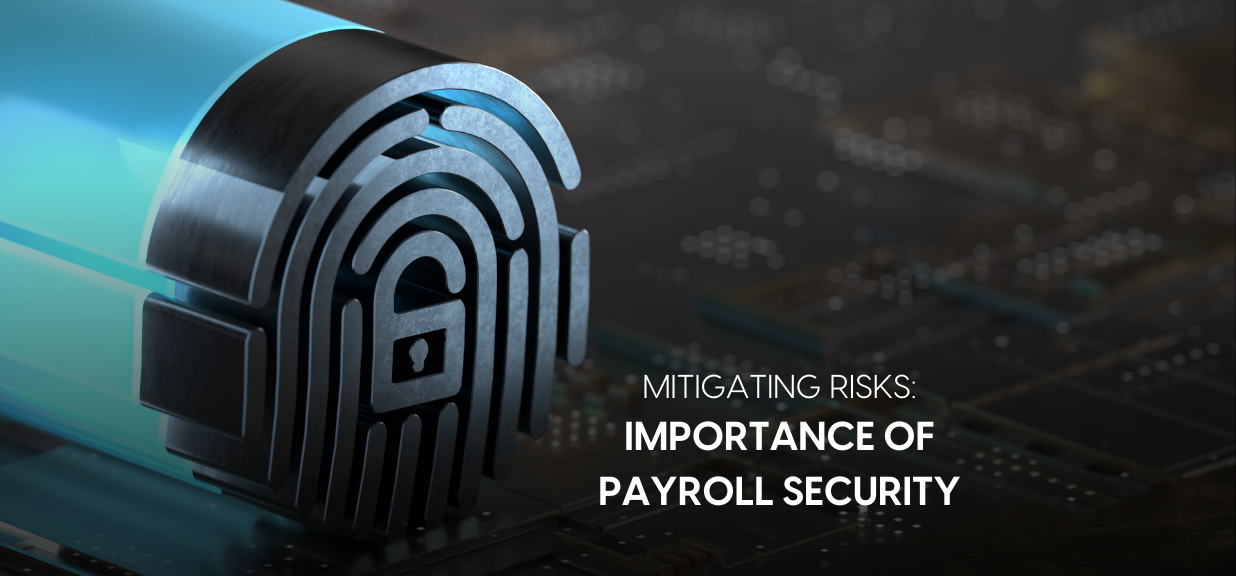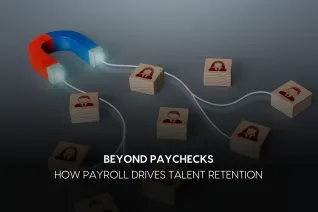Protecting Paychecks: Importance of cybersecurity in payroll

Recent high-profile cyber attacks demonstrate that even established brands are vulnerable. Companies such as Meta, TikTok, and Amazon have paid hefty penalties as settlements in cases of data breach or non-compliance with security and privacy laws. In 2021, even a popular payroll provider came under a ransomware attack that affected thousands of employees of their clients, including Tesla, PepsiCo, and Whole Foods.
Payroll data is extremely sensitive, warranting top-tier protection from companies to avoid data breaches. Deploying payroll systems with poor cybersecurity can have devastating consequences like employee identity theft, financial fraud, and privacy breaches. In the wrong hands, names, salary information, addresses, and social security numbers can wreak havoc. Poor data security also attracts hefty legal and regulatory penalties for violating data protection laws.
Organizations must prioritize robust cybersecurity measures and employee education on password management, phishing awareness, secure network usage, and more to ensure employee safety and compliance.
Also Read | Fortifying Payroll Operation: The Crucial Importance of Data Security
Lurking behind the screens: Common threats to a payroll system
Safeguarding sensitive payroll data should be a priority for businesses. Unfortunately, payroll systems face immense threats of data theft and security breaches. Here are some common threats payroll systems can face if not shielded from cyber attacks effectively:
- Cyber attacks: This includes data breaches due to hackers gaining unauthorized access to sensitive employee data, ransomware attacks where hackers encrypt payroll data, rendering it unusable, and Denial-ofService (DoS) attacks, where hackers can disrupt payroll processing by making the data unavailable to authorized users.
- Insider threats: Some data breaches can occur due to the involvement of employees intentionally or unintentionally. Some employees may misuse data for personal gain. Data can also be accidentally exposed due to employees’ negligent behavior.
- Social engineering attacks: These include phishing attacks that send malicious emails to install malware on a firm’s system or hackers posing as legitimate persons to gain access to information.
- Other threats: In other scenarios, systems can become easier targets for hackers. These include having outdated software, allowing easier physical access to data centers, or hardware failures that are not patched on time.
Also Check Out | The Ultimate Guide to Cybersecurity for Remote Workforce
Strengthening your cyber fort: Best practices for better protection
-
Security Infrastructure and Protocols
Companies must implement robust infrastructure security measures to safeguard payroll systems against threats. Strict access controls allowing only necessary employee system permissions to protect data. Encrypting stored and transmitted payroll information provides additional assurance if it is breached. Multi-factor authentication must be utilized to verify employee identities before granting system access. Advanced AI-powered firewalls and intrusion detection can recognize attack patterns. This, combined with secure communication channels, can prevent data interception. It is essential to have continuous upgrades to these protocols based on emerging attacks.
-
Operational Safeguards
Vigilant security operations constitute a strong infrastructure. Conducting frequent external audits can help organizations stay on top of any vulnerabilities. Comprehensive training around the importance of safe data practices, phishing identification, password policies, and incident reporting can help organizations remain aware of any data breach attempts. And in case of any such incidents, it is critical to conduct regular backups to facilitate restoration. Organizations can have security operations centers to monitor networks and constantly identify abnormal activities.
-
Compliance and Governance
It is important to adhere to industry data protection standards. Regular compliance audits can help organizations assess their data privacy and retention policies. With the evolving compliance landscape, seeking consultations can help with risk assessment. If third parties are involved, companies must ensure they have high security standards to mitigate risks. There are several certificate standards, such as the ISO27001 issued by the International Organization for Standardization, the SOC2 reports that verify privacy controls, and PCI DSS issued by the PCI Security Standards Council to protect payment and transaction data, that companies can obtain to demonstrate compliance. Neeyamo ensures compliance at all levels and has obtained critical certifications to maintain security standards.
You might also like | Securing HR Data: Protecting Privacy and Reputation in the Digital Age
Emerging trends: The way forward
While hackers become more sophisticated, organizations can leverage emerging technologies to gain the upper hand in protecting sensitive data. These technologies empower businesses to respond effectively to security threats. Listed below are a few emerging technologies that can support system security:
- Behavioral Analytics: By analyzing user access patterns and identifying anomalies, behavioral analytics can detect suspicious activity in real-time, preventing potential data breaches before they occur.
- Blockchain: The distributed nature of blockchain technology can significantly enhance payroll data security by ensuring the integrity and traceability of sensitive information. This makes it difficult for unauthorized individuals to tamper with data or gain access.
- AI-based Threat Intelligence: Organizations can gain invaluable insights into emerging threats and vulnerabilities by leveraging AI and machine learning. This allows them to prioritize risk mitigation and respond to potential attacks effectively.
- Automation for Incident Response: Automating key tasks within the incident response process, such as data isolation and containment, reduces the time it takes to respond to a breach. This minimizes potential damage and speeds up the recovery process.
By embracing these emerging technologies, organizations can significantly strengthen their payroll data security posture and protect their employees' sensitive information from evolving threats.
Neeyamo holds data security sacredly, ensuring vigilant security practices and comprehensive risk mitigation strategies to transform global payroll processing. Join our payroll revolution and fortify your payroll systems. Reach out to us at irene.jones@neeyamo.com.
Latest Resources
Stay informed with latest updates
If you're curious and have a thirst for knowledge pertaining to the HR, payroll, and EOR universe, don't miss out on subscribing to our resources.















